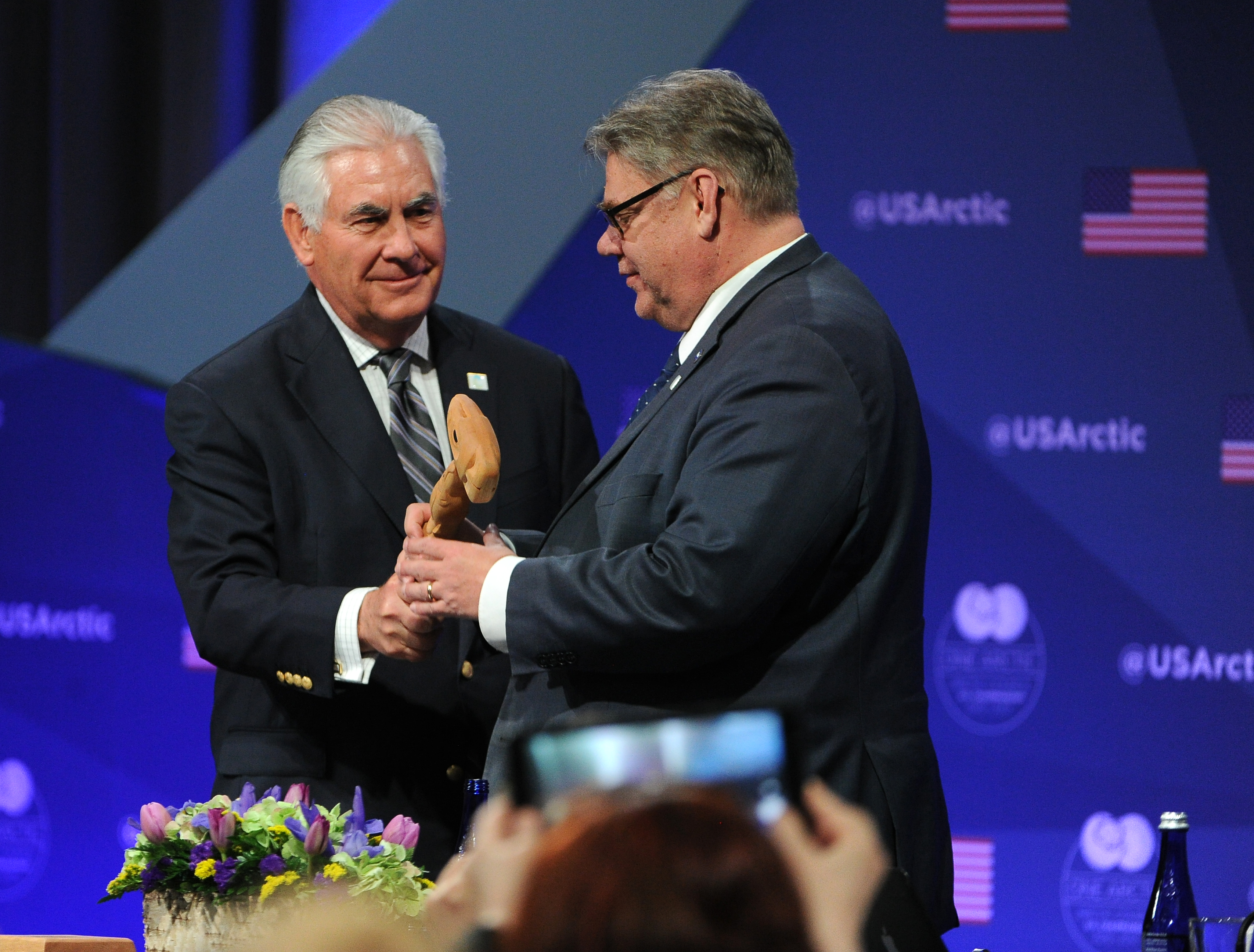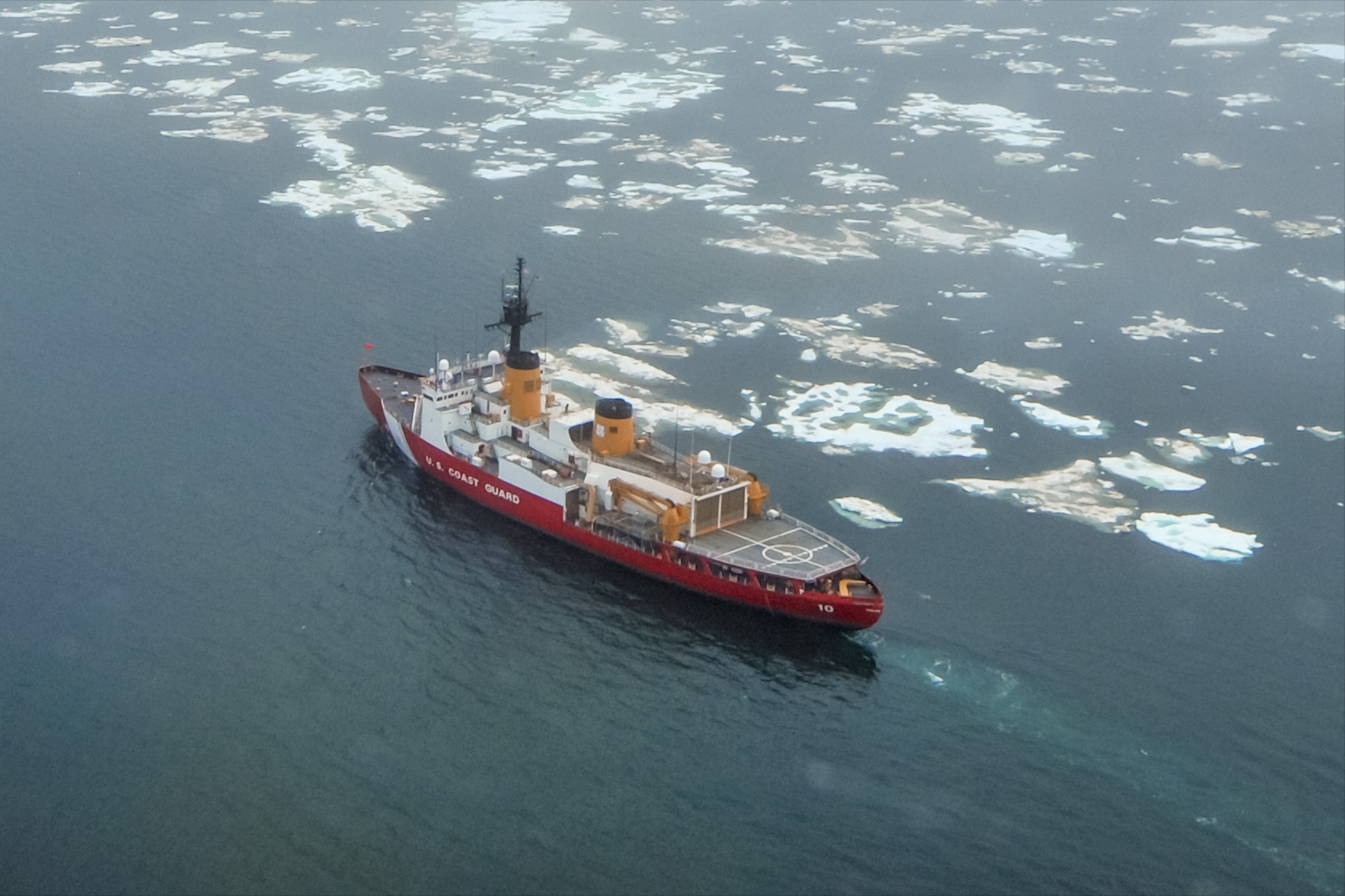Tillerson: US lags ‘behind all the other Arctic nations’

In an interview Tuesday, U.S. Secretary of State Rex Tillerson acknowledged that while the Arctic is globally important and will become more important in the future, the U.S. continues to lag behind other Arctic nations — and even non-Arctic nations — in its engagement in the region.
Tillerson’s remarks came at the conclusion of a conversation at the Woodrow Wilson Center in Washington, and were widely noted (and criticized) elsewhere for Tillerson’s response to criticisms about cuts to the State Department. (Disclosure: Arctic Now owner Alice Rogoff co-chairs the Wilson Center’s Polar Initiative.)
In response to a final question from moderator Jane Harman, Tillerson said the opening of new shipping routes in the region “from an economic and trade standpoint, but certainly from a national security standpoint, is vitally important to our interest,” and admitted that “we’re late to the game.”

Tillerson singled out the United States’ limited polar-capable icebreaking capacity as an example of the nation’s flat-footedness in the Arctic.
“I think we have one functioning icebreaker today. The Coast Guard’s very proud of it,” Tillerson said, to laughter, “as crummy as it is.”
Tillerson appeared to be referring to the Polar Star, the sole U.S. heavy icebreaker. That ship, which was refitted in 2013 to extend its service life span, has operated mainly in Antarctic waters in recent years. The Healy, a newer medium-duty icebreaker designed for scientific research, has seen more service in the Arctic. (The U.S. Coast Guard also maintains non-polar-capable icebreakers on the Great Lakes.)
Efforts to acquire new heavy icebreakers capable of polar operation for the Coast Guard have enjoyed bipartisan support, including from both former president Barack Obama and current president Donald Trump, but have progressed slowly.
Meanwhile, other nations—including nations outside the region, such as China—are building capacity, including icebreakers, in the region, Tillerson acknowledged.
“So our engagement through not just the Arctic Council but through other mechanisms is important to working with the Arctic countries on international norms, what are the rules of the game going to be,” Tillerson said, “because these are areas that have not been addressed in the past.”